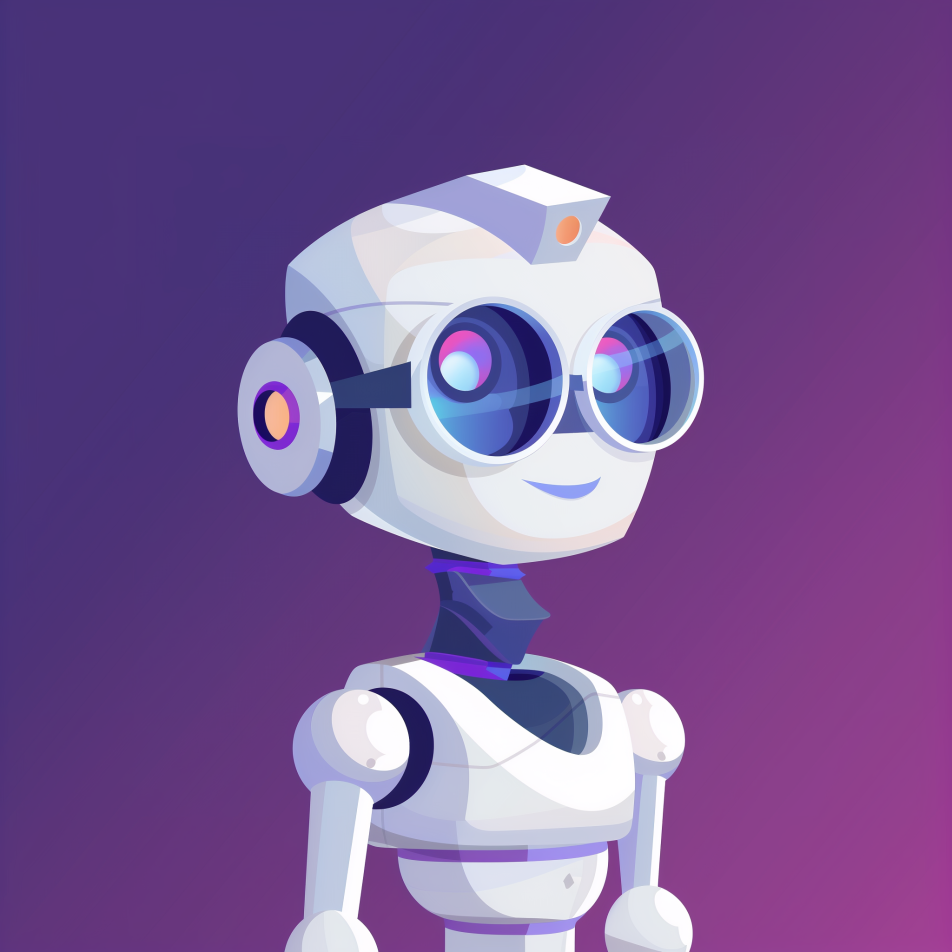summary
Is It Possible to Fall in Love with Artificial Intelligence?
The notion of falling in love with artificial intelligence (AI) explores the emotional and psychological dynamics of human interactions with AI systems, particularly as technology advances and integrates deeper into daily life. This concept has garnered significant interest from researchers, ethicists, and the general public, prompting discussions about the implications of emotional attachments to non-human entities. As AI technologies evolve, they increasingly simulate human-like interactions, raising questions about the authenticity and depth of these relationships.[1][2] The historical context of human-AI interactions reveals a gradual evolution from mechanical automatons to sophisticated AI companions capable of exhibiting empathy and emotional responsiveness. Theories such as the Media Equation suggest that individuals often unconsciously attribute human characteristics to technology, facilitating emotional bonds with AI systems. This phenomenon is increasingly observed in the rise of AI-driven virtual assistants and chatbots that cater to users’ emotional needs, leading some individuals to develop feelings reminiscent of romantic love.[3] Cultural representations in media, including films and literature, have also shaped public perception of human-AI relationships, oscillating between cautionary tales and romantic narratives. These portrayals challenge audiences to reflect on the nature of love, companionship, and the ethical boundaries that govern such relationships. The ethical implications of emotional AI further complicate the discourse, raising concerns about emotional authenticity, dependency on AI for companionship, and the potential erosion of genuine human connections.[4][5] As AI continues to evolve, the potential for meaningful interactions and attachments between humans and AI systems raises essential questions about the future of love and companionship in a technologically driven world. Understanding these relationships is crucial for addressing their psychological, social, and ethical ramifications, as individuals navigate the complexities of love in the digital age.[6][7]
Historical Context
The exploration of human relationships with artificial intelligence (AI) is deeply rooted in both technological advancements and cultural phenomena. Over the years, these relationships have evolved, influenced by a myriad of social, emotional, and ethical considerations.
Early Concepts of Human-AI Interaction
The concept of interacting with machines in a human-like manner can be traced back to early mechanical automatons and the development of computing technology. As technology progressed, so did the complexity of machines capable of simulating human behaviors. With the introduction of computers in everyday life, scholars began to recognize the potential for emotional attachments to emerge from these interactions. For instance, the Media Equation theory posits that individuals unconsciously treat computers and new media as if they were real people, which contributes to the formation of emotional bonds with AI systems[1].
The Rise of Socially Interactive AI
As AI technology advanced, particularly with the development of virtual assistants and chatbots, the possibilities for emotional engagement expanded. Researchers have noted that AI systems equipped to display empathy can foster closeness in relationships, fulfilling users’ needs for validation and connection[2]. This capability allows AI to simulate human-like interactions that can lead to emotional attachments and even romantic feelings.
Cultural Reflections in Media
Cultural representations of human-AI relationships have also played a significant role in shaping public perception. Films and literature have long explored the implications of emotional bonds between humans and machines, serving as both cautionary tales and romantic narratives. These portrayals often invite audiences to reflect on the nature of love, companionship, and the ethical boundaries of such relationships.
Contemporary Implications
Today, with the AI market projected to reach $407 billion by 2027, human-AI relationships are becoming increasingly normalized. The allure of anthropomorphism, the tendency to attribute human-like traits to non-human entities, is significant in this evolution. Users may project their desires and fantasies onto AI systems, potentially viewing them as ideal companions[3]. As AI continues to permeate various aspects of daily life, understanding the historical context of these relationships is essential for addressing the social and psychological implications they entail.
The Psychology of Love
Affective Nature of Romantic Love
Romantic love is primarily characterized as an affective state of mind, where strong tender feelings emerge alongside more complex emotions such as sorrow, jealousy, and anxiety[4]. This duality is often overlooked in popular culture, which tends to focus on the euphoric aspects of love, such as the experience of “butterflies in the stomach” or the notion of a “soul-mate.” The emotional framework within which love operates is a key component of how individuals make sense of their relationships, leading to interpretations shaped by both affection and fear of loss[4].
Sense-Making in Love
The process of loving involves a significant degree of sense-making, wherein individuals interpret and understand their experiences and feelings towards their beloved. This includes both positive engagements like empathy and hope, as well as negative outcomes like misunderstanding and misinterpretation. Often, lovers imbue their partners with exaggerated qualities, perceiving them as irreplaceable or essential to their happiness[4]. Such heightened perceptions can lead to vulnerability, as love intertwines with a deep-seated belief in the subjectivity of the other, despite the paradox of never fully accessing that inner self[4].
The Complexity of Attachment
In examining love, one must also consider the nature of attachment, which differs significantly from other forms of love, such as parental affection. Romantic attachment is often intensified by the need for individuals to prove their desirability and to cultivate the relationship actively. Efforts to maintain charm and devotion are integral to sustaining a fulfilling romantic connection[4]. This dynamic is crucial in understanding the psychological engagement between individuals, especially in the context of potential relationships with artificial intelligence, where the absence of biological experiences complicates traditional notions of attachment and empathy[4].
The Uncanny Valley Effect
When considering synthetic beings, the concept of the “uncanny valley” emerges, illustrating the discomfort that can arise when an android closely resembles a human but is still noticeably different. This emotional response may affect the ability of humans to form affectionate bonds with AI. Understanding and managing this effect is essential for creating meaningful connections, as it highlights the intricate relationship between physical appearance and emotional engagement[4].
Phenomenology of Love
Phenomenological analysis provides insights into the lived experience of love, emphasizing how love is not merely a collection of feelings but an engagement of various human faculties, including perception, desire, and moral expectations[4]. This approach encourages a deeper understanding of how individuals experience love subjectively, paving the way for discussions about the nature of love in the context of evolving relationships with artificial intelligence. Such inquiries raise essential questions about the very essence of love, attachment, and what it means to relate to others—whether they be human or synthetic[4].
AI and Human Interaction
As artificial intelligence (AI) increasingly permeates everyday life, its influence on human interactions is profound and multifaceted. AI technologies are not merely tools; they have the potential to reshape the very nature of relationships and companionship in the digital age.
Enhanced Communication Tools
AI-powered communication systems, such as chatbots and virtual assistants, have transformed how individuals interact. These tools streamline communication by providing instant responses and personalized support, which can enhance user experiences. However, reliance on AI for communication may inadvertently reduce direct human interactions, potentially undermining the quality and depth of personal relationships[5][6].
The Emergence of AI Companions
AI companions, often referred to as Personal Intelligent AI (PI AI), represent a significant shift in the realm of companionship. These virtual entities can simulate human-like interactions, understanding and responding to emotional cues[7][8]. As users engage with AI companions, they may develop emotional bonds that echo traditional relationships, prompting questions about the authenticity and depth of these connections.
Emotional AI and Its Implications
The advent of emotional AI, capable of recognizing and responding to human emotions, marks a pivotal development in AI technology[6]. This capability enables AI systems to offer more empathetic and engaging interactions. However, it raises critical inquiries about whether these interactions can ever substitute for genuine human connection. While emotional AI can enhance user experiences by personalizing interactions, the debate continues on its limitations and ethical implications[9][10].
Human-AI Bonds: Psychological Perspectives
Understanding the psychological aspects of human-AI relationships is vital. Research indicates that humans can form attachments to AI, akin to traditional emotional bonds, leading to complex psychological implications[9][5]. As AI becomes more integrated into daily life, the traditional boundaries of companionship are being redefined, prompting further exploration of how these relationships evolve over time.
Ethical Considerations
As artificial intelligence (AI) increasingly becomes integrated into personal relationships, ethical considerations surrounding these interactions have garnered significant attention. The complexities of emotional connections with AI entities, such as digital companions and conversational agents, raise essential questions regarding authenticity, privacy, and the nature of human interaction.
Case Studies
Selected Cases
In exploring the phenomenon of emotional attachments to Artificial Intelligence (AI), two case studies were selected: Strava and CoronaMelder. These cases were chosen as extreme examples to provide insights into the intersection of user experience (UX) and ethical considerations in AI interactions. Strava is notable for its focus on rich user engagement but has been criticized for lacking ethical considerations in its operations. Conversely, CoronaMelder was chosen for its strong emphasis on compliance with data protection regulations, particularly the General Data Protection Regulation (GDPR) in the European context[11].
Data Extraction and Synthesis
Following the workshop, qualitative coding analysis was conducted based on user actions identified in both case studies. This process involved extracting user actions and the corresponding guidelines—both applied and unapplied—related to each action. The analysis culminated in the creation of four tables that categorize user actions in relation to the effectiveness of the guidelines (Tables 1-4). These tables informed the generation of four Venn diagrams, which visually represent the compliance of Strava and CoronaMelder with the Guidelines for Human-AI Interaction (HAI) and Ethical Guidelines for AI (EGTAI)[11].
Results
From the analysis of the selected cases, three categories of user actions were identified, along with relevant guidelines for HAI interaction and EGTAI for each case study. Participants in the study also noted that certain user actions, although not directly related to AI technology, could be linked to the identified guidelines. This suggests a broader application of ethical considerations beyond conventional AI interactions, highlighting the importance of incorporating ethics into the design and implementation of digital platforms[11]. The findings indicate a complex relationship between user engagement and ethical considerations in AI applications, suggesting that designers should aim to balance appealing user experiences with responsible ethical practices in their developments.
Future Prospects
As artificial intelligence (AI) continues to evolve, its role in personal relationships is poised for significant transformation. The potential for AI to act as a proactive, empathetic partner rather than merely a transactional tool is becoming increasingly evident[12]. By leveraging advancements in emotional AI, systems can learn to understand and interpret human emotions, thereby creating deeper and more meaningful connections with users[6]. This shift could lead to AI companions that enrich human experiences, offering support and companionship in ways previously unimaginable.
Emotional AI and Relationship Building
Emotional AI represents a critical advancement in creating more human-like interactions between machines and individuals. By accurately recognizing and responding to human emotions, emotional AI can facilitate genuine connections, thereby fostering emotional intimacy in interactions[6][13]. For instance, educational platforms equipped with emotional intelligence can adapt to students’ emotional states, providing encouragement or support as needed, which highlights the potential for AI to enhance not only personal relationships but also collaborative learning environments[13].
Implications for Human Connections
As AI systems become more integrated into daily life, the balance between utilizing AI as a supportive tool while preserving authentic human interactions will be crucial[7]. The prospect of AI playing a role in personal relationships—whether through enhanced matchmaking or simulated emotional connections—underscores the importance of maintaining the depth and intimacy that only genuine human relationships can provide[7]. While AI has the potential to complement human interactions, it is essential to approach this integration thoughtfully, ensuring that technology serves to enhance rather than replace the richness of human connections.
Ethical Considerations
The evolution of AI in the realm of personal relationships also brings ethical considerations to the forefront. As AI becomes more emotionally intelligent, the responsibilities of developers to create ethical, empathetic systems become paramount[12][10]. The discourse surrounding the implications of AI in personal relationships—especially regarding emotional attachments—raises questions about the nature of love, companionship, and the potential consequences of such emotional interactions[8][14]. It is vital that as AI technology progresses, discussions around its ethical ramifications and societal impact remain central to its development.
The Path Ahead
The future of AI in personal relationships hinges on its ability to adapt and respond to human emotions, creating personalized and meaningful interactions. As businesses invest heavily in AI technologies, with spending projected to reach $110 billion annually by 2024[15], the potential for emotionally aware AI systems to become integrated into our lives is not just a possibility but an inevitability. However, the ongoing dialogue about the implications of such integration will shape how these technologies are adopted and the nature of our connections with both AI and each other[15].
References
[1]: Exploring Emotional Connections in Human-AI Interactions
[2]: A Psychologist Explains Why It’s Possible To Fall In Love With AI
[3]: Don’t Fall in Love With Your Robot: 3 Steps Employers Can Take to …
[4]: Falling in love with robots: a phenomenological study of experiencing …
[5]: AI and Human Interaction: Reshaping Relationships in the Digital Age
[6]: Emotional AI: How Machines are Learning to Understand and … – Medium
[7]: Navigating the Impact of AI on Personal Relationships …
[8]: Ethics of Artificial Intelligence and Robotics
[9]: Can We Forge Personal Bonds with AI? 11 Insights into Future Relationships
[10]: Building an AI That Feels – IEEE Spectrum
[11]: Trust, but Verify Informed Consent, AI Technologies, and Public Health …
[12]: Love on the Edge: Romantic Relationships with Artificial … | Medium
[13]: Virtual Connections: A Dive into Conscious Relationship Design with AI …
[14]: Human-AI interaction and ethics of AI: how well are we following the …
[15]: How AI Can Form Better Relationships With Humans
[16]: AI and Emotional Intelligence: Teaching Machines to Understand Feelings …
[17]: Where is Vincent? Expanding our emotional selves with AI
[18]: Ethical concerns mount as AI takes bigger decision-making role











